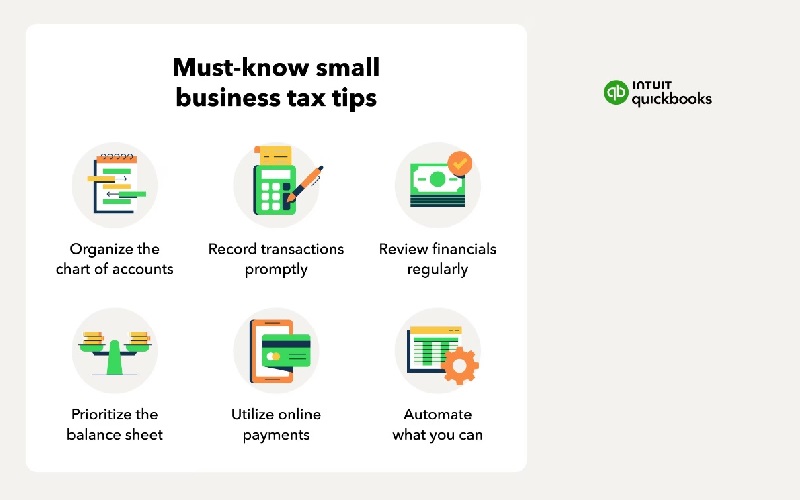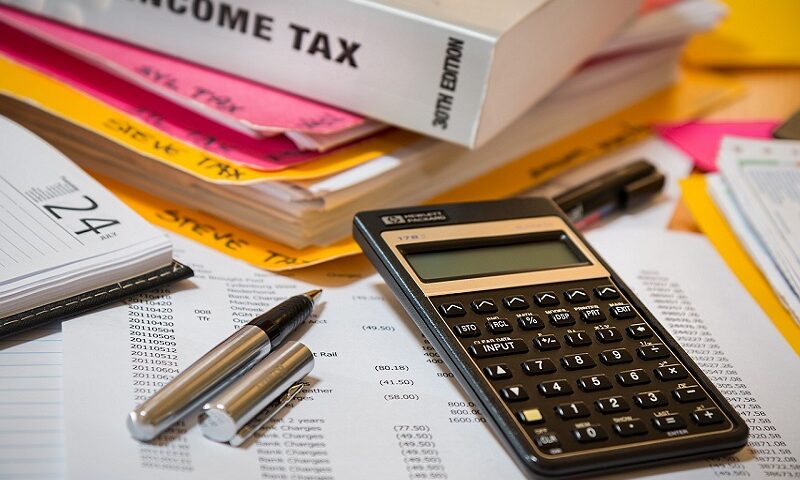
Small Business SOS: The Cash Flow Edition – What You Need to Know
October 20, 2023
Do I need an accountant if I am self employed?
November 1, 2023Introduction
Small business taxes are the taxes that small businesses must pay to the federal and state governments. Small businesses can be taxed as sole proprietorships, partnerships, limited liability companies (LLCs), or corporations. The type of business structure will determine which tax forms the business must file and how the business income is taxed.
Why are small business taxes important?
Small business taxes are important because they help to fund essential government services, such as infrastructure, education, and healthcare. Small businesses also contribute significantly to the U.S. economy, accounting for over half of the private sector workforce and generating over two-thirds of the net new jobs created each year.
The benefits of filing small business taxes correctly
There are many benefits to filing small business taxes correctly. By filing correctly, businesses can avoid penalties and interest, reduce their tax liability, and maximize their tax deductions and credits. Additionally, filing correctly can help businesses to maintain a good reputation with the IRS and state tax authorities.
The consequences of filing small business taxes incorrectly
There can be serious consequences for filing small business taxes incorrectly. Businesses that file incorrectly may be subject to penalties and interest, and they may be required to pay additional taxes. Additionally, filing incorrectly can damage the business’s reputation and make it more difficult to obtain financing in the future.
How to prepare for small business tax season
The best way to prepare for small business tax season is to start early and to keep accurate records throughout the year. Businesses should gather all of their financial information, such as receipts, invoices, and bank statements. They should also make sure to understand the different tax deductions and credits that they may be eligible for.

Small Business Tax Deductions
What are small business tax deductions?
Small business tax deductions are expenses that businesses can subtract from their taxable income. By claiming deductions, businesses can reduce their tax liability.
Common small business tax deductions
There are many different types of small business tax deductions. Some common deductions include:
- Business expenses: Ordinary and necessary business expenses, such as rent, utilities, and office supplies.
- Home office expenses: If a business owner uses their home for business purposes, they may be able to deduct a portion of their home expenses.
- Vehicle expenses: If a business owner uses their vehicle for business purposes, they may be able to deduct a portion of their vehicle expenses.
- Meal and entertainment expenses: Meal and entertainment expenses may be deductible if they are directly related to the business.
- Startup costs: Startup costs, such as business formation costs and marketing expenses, may be deductible.
- Employee benefits: Employee benefits, such as health insurance and retirement plan contributions, may be deductible.
How to claim small business tax deductions
To claim small business tax deductions, businesses must keep accurate records of their expenses. Businesses should also keep copies of all receipts and invoices.
Tips for maximizing small business tax deductions
There are a few things that businesses can do to maximize their tax deductions:
- Keep accurate records of all expenses.
- Understand the different types of tax deductions that are available.
- Claim all eligible deductions.
Small Business Tax Credits
What are small business tax credits?
Small business tax credits are dollar-for-dollar reductions in a business’s tax liability. Tax credits can be claimed for a variety of activities, such as research and development, hiring employees from certain groups, and investing in energy-efficient equipment.
Common small business tax credits
Some common small business tax credits include:
- Research and development tax credit
- Work opportunity tax credit
- Employer tax credit for health insurance
- Small business health care tax credit
- Disabled access credit
- Energy-efficient commercial building deduction
How to claim small business tax credits
To claim small business tax credits, businesses must file the appropriate tax forms. Businesses should also keep records of the activities that they are claiming tax credits for.
Tips for maximizing small business tax credits
There are a few things that businesses can do to maximize their tax credits:
- Understand the different types of tax credits that are available.
- Claim all eligible credits.
- Keep records of the activities that you are claiming tax credits for.
Small Business Tax Software
What is small business tax software?
Small business tax software is a computer program that helps businesses to file their taxes. Tax software can help businesses to calculate their tax liability, claim deductions and credits, and file their tax forms electronically.
The benefits of using small business tax software
There are many benefits to using small business tax software. Tax software can help businesses to:
- Save time and effort
- Reduce the risk of errors
- Maximize their tax deductions and credits
- File their taxes electronically
How to choose the right small business tax software for your needs
When choosing small business tax software, businesses should consider the following factors:
- The size and complexity of the business
- The types of taxes that the business needs to file
- The budget of the business
- The features that are important to the business
Popular small business tax software programs
Some popular small business tax software programs include:
- TurboTax Business
- H&R Block Business
- TaxAct Business
- FreeTaxUSA Business
- Wave
Small Business Tax Preparation Services
What are small business tax preparation services?
Small business tax preparation services are professional services that can help businesses to file their taxes. Tax preparers can help businesses to calculate their tax liability, claim deductions and credits, and file their tax forms correctly.
The benefits of using small business tax preparation services
There are many benefits to using small business tax preparation services. Tax preparers can help businesses to:
- Save time and effort
- Reduce the risk of errors
- Maximize their tax deductions and credits
- Avoid penalties and interest
- Maintain a good reputation with the IRS and state tax authorities
How to choose a small business tax preparer
When choosing a small business tax preparer, businesses should consider the following factors:
- The experience and qualifications of the tax preparer
- The fees charged by the tax preparer
- The services that the tax preparer offers

Tips for working with a small business tax preparer
Here are a few tips for working with a small business tax preparer:
- Provide the tax preparer with all of your financial information, such as receipts, invoices, and bank statements.
- Be clear about your tax goals and objectives.
- Ask the tax preparer to explain any deductions or credits that they are claiming on your behalf.
- Review the tax preparer’s work carefully before signing and submitting your tax forms.
Small Business Tax FAQs
Q: What are the most common small business tax deductions?
A: The most common small business tax deductions include business expenses, home office expenses, vehicle expenses, meal and entertainment expenses, startup costs, and employee benefits.
Q: How do I claim the home office deduction?
A: To claim the home office deduction, you must use your home exclusively and regularly for business purposes. You must also keep a record of your home office expenses.
Q: What are the different types of small business tax credits?
A: There are many different types of small business tax credits, including the research and development tax credit, the work opportunity tax credit, the employer tax credit for health insurance, the small business health care tax credit, the disabled access credit, and the energy-efficient commercial building deduction.
Q: How do I file self-employment taxes?
A: To file self-employment taxes, you must file Schedule C with your Form 1040. Schedule C is used to report your self-employment income and expenses.
Q: What are the consequences of filing my small business taxes incorrectly?
A: If you file your small business taxes incorrectly, you may be subject to penalties and interest. You may also be required to pay additional taxes. Additionally, filing incorrectly can damage your business’s reputation and make it more difficult to obtain financing in the future.
Conclusion
There are many resources available to help small business owners with their taxes. Small businesses should take advantage of these resources to ensure that they are filing their taxes correctly and maximizing their tax deductions and credits.
External Links
Internal Revenue Service (IRS) Small Business Tax Center
Small Business Administration (SBA) Tax Information
National Federation of Independent Business


